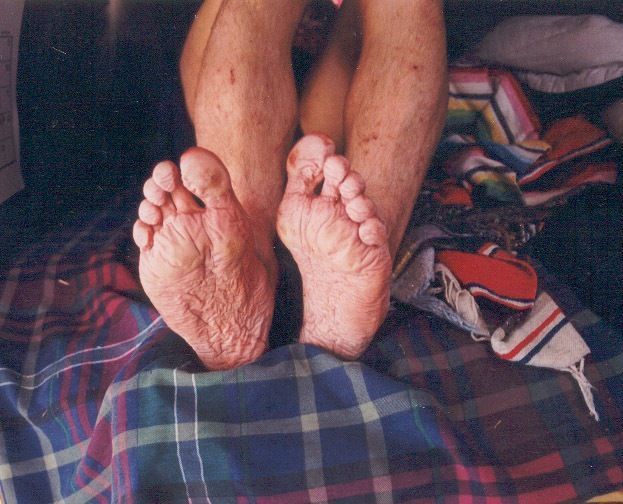Other Gear

This list encompasses a broad range of small necessities that will make living in the bush a little more bearable.
#1 – Good Duct Tape
Duct tape can be a planter’s best friend, from temporarily repairing gear, to saving your fingers from imminent annihilation. Bring several rolls of the good stuff. Cheap duct tape is about as useful as wet toilet paper. 3M duct tape is the best.
Mosquito Repellent
Bring lots with a high concentration of DEET. Use it sparingly, as DEET can be harmful to both you and your gear when used excessively.
Sunscreen
For those long, hot days on the block with no shade. Using sunscreen is important. You know this, unless you have been living in a cave for the last 10 years.
Permanent Marker
Your gear looks like everybody else’s. Write your name on everything. For rain gear, write your name on the outside in big print.
Money
You won’t get your first pay cheque or advance for a couple of weeks. Bring money for hotels, food, last-minute purchases etc.
Freesole and Sewing Kit
Good for repairs of any kind to gear and tents if duct tape can’t do the job.
Water Jugs
One 5-10 litre jug and one 1 litre bottle to carry with you. We cannot overemphasize a treeplanter's need for large volumes of water. Keep very well hydrated to maintain peak physical condition.
Hydration packs are ideal as you can take a sip every 5 or 10 minutes – which is ideal.
Knife
Handy for many reasons, from removing box ends for tallies, to cutting twine while setting up your personal tarp.
Watch
A cheap, water-resistant watch is a good idea. You will need to know what time it is, especially if you have to catch a helicopter back to camp.
MP3 Player
Listening to some tunes in your tent before you fall asleep can be a welcome end to the day. I would not take your fancy new iPhone (for example) on the block. It will get wrecked.
Batteries
For mp3 players, flashlights, cameras…
Bear Spray
Just having a bear spray puts you at risk of accidental exposure, which is no fun. If you are terrified of bears and having a bear spray makes you way more comfortable, ask your employer if you can bring one.
If you are going to bring a bear spray, you really should complete the wildlife training on Forest-Safety.com to learn how to properly use it and not hurt yourself or others.
Aspirin
Good for first of the season aches and pains but taking any sort of painkiller is risky business. Some of the pains masked by aspirin may be warnings that your body is damaged and needs rest. Sometimes taking pain killers will allow you to further the damage.
Additionally, taking pain killers when working hard can lead to some unexpected, and dangerous side effects. If you are injured, let the first aid attendant know. Attendants are typically very well trained and resourceful.
Towel
For showers in camp and swimming excursions.
Swim Suit
Small Backpack
A small backpack is the perfect bag to carry all of your stuff out to block each day.
Cutlery/Dishes
Some contractors provide for their planters, some do not. Find out before the start of the season, or bring some just to be safe.
Toiletries
Ensure to include all the essentials in a compact shaving kit or bag. If you are going to be in a tent, you will likely have to store your toiletries in a dry shack or vehicle.
Foot Powder
Fairly self-explanatory, and a good item to have when you spend ten hours a day on your feet in the heat, rain or both. Planters get pickle foot. Your feet can be wet in your boots all day from either water or sweat. After walking 16 km, your feet can be in rough shape. Be sure to thoroughly dry out your feet each night.
First Aid Kit
All camps will have extensive first aid kits, however, your own personal kit is recommended. This should include band-aids, medical tape, moleskin, gauze and a tensor bandage.
Skin Cream
Anything with Vitamin E. This will help reduce cracking and splitting of fingertips and hands. Many planters sustain nasty and painful damage to their hands because their hands are in the dirt all day. Deep splits can be avoided through the frequent application of hand cream. Keep hand cream in the dry shack or a vehicle with your other toiletries.
Ear Plugs
If you’re a light sleeper, snoring neighbours will make your nights a living hell.
Note Pad and Pen
It is highly recommended to record each day’s production and earnings.
It is also a great idea to keep a journal. Trust us – you’ll look back and laugh!
Books
Many people will need to get away from the group from time to time. A book can be a great escape. Perhaps treeplanting is your opportunity to take on a new mental challenge you’ve been thinking about.
Camp Chair
No, not for sitting around on the cutblock, but for having somewhere comfortable to sit in camp. Your back will love you and everybody else will be jealous.
Tupperware
Tupperware can work its way into you gear in several places.
- Lunch kit: Put all of your lunch into a sturdy Tupperware and it will stay dry and not squashed.
- Toiletries Case: Keep your toothpaste, shampoo and other toiletries in the dry shack inside a big Tupperware (for bush camps).
Alarm Clock
Just like working any other job, you need to get yourself out of bed each morning. You’re going to need a reliable clock that is battery operated. Make sure the alarm is loud enough to wake you up at 5 AM when your body is exhausted.
Space Blanket
This can be a great item to have handy both in the field and at camp. When you are cold and wet and everything seems to be against you, this little blanket will get you warm. Considering how inexpensive they are, it's great to have one or two.
